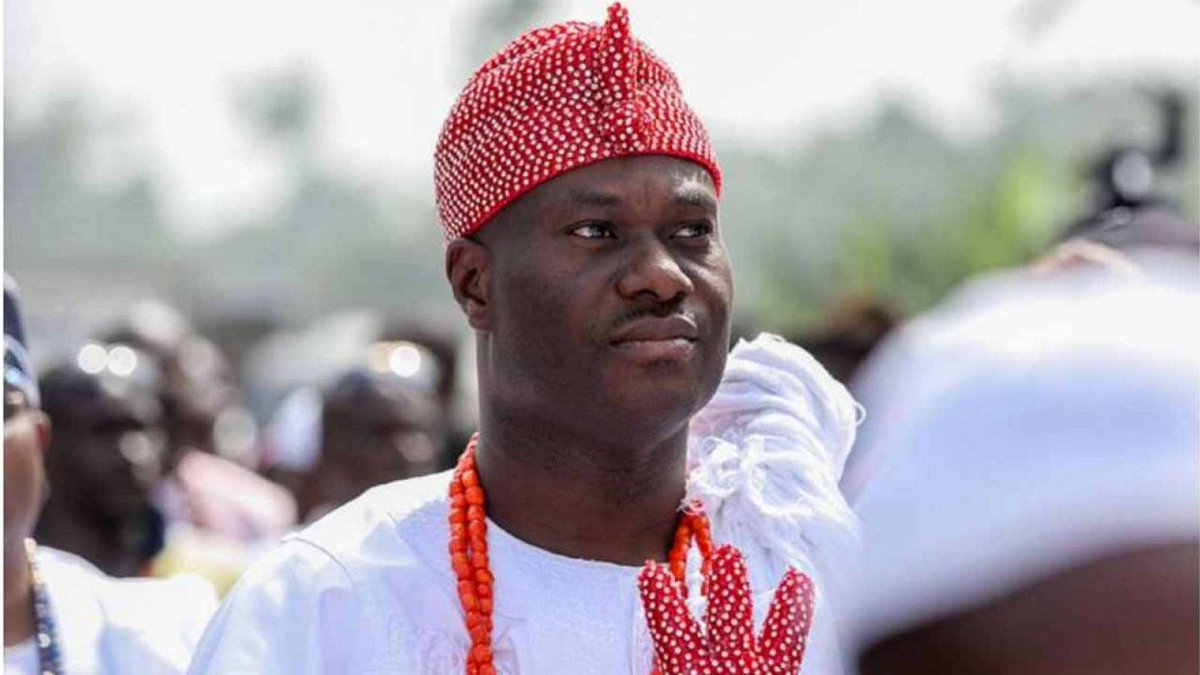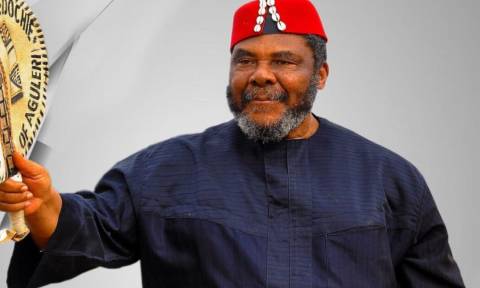
In this interview, Chioma Ude, Founder/CEO, Africa International Film Festival, tells FUNKE OSAE-BROWN the importance of film festival to the growth and development of the Nigerian film industry.
Hosting AFRIFF in Lagos
There is no other reason for relocating the festival to Lagos this year than the fact that AFRIFF is designed to be a travelling festival. It is not stationary. It could be back in Port Harcourt next year. It could be in Bayelsa or any other state years afterward.
The fact is that it is a festival that was designed to be mobile. We are considering whether it should be stationary or not. For now, it is something we are discussing but I think one of the things we want to achieve is to ensure that it is a festival that moves within the continent. The issue for me should not be about relocation of venue from Rivers State to Lagos but rather should be about what we are doing to make this year’s festival a unique one. This year’s festival is very concentrated on theme song. I think that is one of the main issues. We have done a lot on workshop, conferences concerning the event and people are going to come and watch.
AFRIFF this year in terms of content will give something for everyone that will come. It will be a place to be because we have songs from francophone Africa countries. We also have a new emerging cinema for Nigeria that the rest of the world will come and appreciate. We also have competition that people can look at and compare with what anybody can get any major festivals around the world. One of the documentary films that we have coming is the new film on Miriam Makeba, Mama Africa. That is a wonderful film. That film is going to be premiered in Nigeria . We have a lot of great film makers coming to see what we are doing, people like Akin Omotosho. If you like reggae music, or juju, you have got to come to watch beautiful songs in AFRIFF this year.
We have got fantastic music documentaries from the West Indies . We have calypso Rolls. We have got a lot of fantastic feel of the films. We have got ‘Ghetta Life ’ which is about two young people that are into boxing and takes you from almost crying to dancing. It is one of the kinds of go-lucky films we have.
The story behind AFRIFF
AFRIFF like other film festival is designed as a platform to promote film making in Africa and also a platform to encourage film makers to showcase their works for other people from other parts of the world to see. It is a way of encouraging our own filmmakers because exposure is the most important thing for a film maker. It is the ability to network, watch films and see what the new style of film making that is going on out there and then you now ask why are film making in international circuit getting the needed attention and why our own films are not. So, you can always learn from film festival. Also, part of the reasons we focus on good films this year is the fact that we want to help our people to know what is going on outside of our film making in Nigeria . So, if we see how other people are also making their films and what goes into film making it will afford our people the opportunity to share knowledge and experiences with their counterparts and there will be cross-fertilisation of ideas on the global trend in film making.
If you look at a film like ‘Viva Riva’, it has opened in 18 African countries and it has had distribution in almost every region of the world. Now, that is a low budget film compared to an average Hollywood film. What we are seeing is that there is a huge market out there for African cinema and its viability as a good business venture is not in doubt if things are done properly. And you look at a film like ‘Anchor Baby’ by a Nigeria in the Diaspora. For seven weeks running in the UK , it has had a fantastic run in the cinema because this was the first time an African film has been in Odeon Cinema for seven weeks and this goes to show to us the huge Diaspora market our film makers need to tap into. For ‘Anchor Baby’ it was not just that the producers went to premiere in UK but they actually run in the cinema. In the case of ‘Anchor Baby,’ it was each week that Odeon Cinema requested that they had a sellout based on the demand. So, that is a very good achievement for African cinema.
Institutional and individual support for film industry
There has not been good support for the Art and culture sector in Nigeria . We all know that this is one of the sectors that people are just trying to understand. As a journalist that work within or report the sector, you would realise that even by nomenclature now the way even journalists have come to portray the sector through your reportage has also not helped to attract serious attention. Instead of describing the sector as Creative Industry, journalists call the art and culture sector the entertainment industry. When you call an industry an entertainment industry most people do not see the people in it as people to be taken seriously. And because of the way the larger society still perceives the sector despite pockets of successes certain people have recorded in the sector you hardly find a young person from an average educated or a middle-class family, saying he wants to be an actor. This actually boils down to the mentality. It is now that the perception is just beginning to change.
Sponsorship from corporate Nigeria
Getting sponsorship like you rightly said in Nigeria is tough. Sponsorship is still a major problem from corporate Nigeria. They need to identify the value inherent in the creative industry as a brand building platforms and in connecting with their target market. I wish I had brought the brochures and other publications from Durban Film Festival in South Africa and Toronto Film Festival to see the amount of corporate bodies that fell over themselves in order to bankroll some festivals around the world from banks, to telecom and oil companies staking their claims to be lead or major sponsors. Corporate Nigeria must begin to realise that there is more they can get financially if they partner the creative industry.
Financially, in terms of reward there is much to this industry than everybody is seeing. When people talk to me about Nigeria outside this country the first thing they talk about or ask you is if you know this or that Nollywood star and these
are regular conversations with foreigners. May be, some of us are over passionate about the sector because we know the way things are done in other parts of the world. For example, most of what our people know about America and Europe are through their films we watch. An American president would appreciate Hollywood stars, directors and film makers better because these are people that have shown what the American dream is all about, the ability to overturn oppression into transformation that has confounded the whole world. This is actually what brand Nigeria should be positioned to achieve showing who we are and where we are going to the rest of the world through our motion picture. The fact that we thought we couldn’t create something and we have now changed the face of African cinema through Nollywood shows that Nigeria has something to teach the world. It is only few people who know that the huge growth African cinema has achieved in the last decade was as a result of the Nollywood phenomenon and how it has revolutionised the act of film making. This is a fact that nobody is going to take away from Nigeria . The question now is does corporate Nigeria see the big picture?
Nigerian film makers and foreign festivals
Well, it is just the same way that you can look at the problem generally. You walk into an airport and you are a Nigerian waiting on a queue and you saw an ‘Oyinbo’ man with his swagger that walks in. He gets the needed attention while you are ignored. It is going to take time for the value system to change and it is a gradual process. I don’t expect it to change overnight, but what I know that the AFRIFF Technical director is trying to do with me on film is to make sure that whatever film you are seeing on the international film circuit, that is major world film festivals will be available at AFRIFF. AFRIFF is about putting ourselves into the mainstream of the film circuit and making people realise that this is a festival to be reckoned with.
So, if you come to AFRIFF, you are going to see those films that you should have seen at Toronto , Durban , Berlin etc . For us, that is the key thing. This is for the Nigerian producers, directors, actors and all to appreciate. It is also an opportunity to make new friends and pitch their projects with investors, production companies and vendors that will be attending AFRIFF from other parts of the world. There are lots of producers coming to the festival who want to work with our people, they want to network, they want to come across and do great works here, it is for our people to see the benefits in attending.
I am hoping that Nigerian government will start to look at co-production treaties with other countries because that will really help to jumpstart the film industry and make it more globally competitive. The truth about film is that it is political, and it is just like anything else. You have got to know how to swim in the middle of the film festival, network to make sure that the Nigeria films are beginning to get the recognition that they deserve.
We had over 180 entries for this year festival out of which we have selected about 63 films and video premieres. That is, films that have not been shown anywhere else before. The reason for our focus on the Carribean cinema is that they are actually beginning to do what one called Nollywood stars film. It is really important to bring that whole area together with us so that the takeover of new filmmaking can be total in terms of when the Caribbean Islands come on board. Nollywood must collaborate with the Africans in the Diaspora. The focus will be on black and African cinema and what it can do in terms of creating content for home and the Diaspora markets. It is one of the main things we want to achieve at AFRIFF this year.
Cutting cost
Hosting AFRIFF in Lagos automatically means our cost on transportation and accommodation will reduce by more than 60 percent. We will not need to fly crew and invited local and foreign guests to Port Harcourt which is a huge cost. I mean, having to by local tickets for between 250-300 guests. For our foreign guests, we first land them in Lagos and you are scratching your head over the cost of flying to Port Harcourt again. Also on accommodation, most of the Nigerian guests and film makers are in Lagos and all this will reduce our cost on hotels and other sundry bills. It is going to be cheaper in Lagos to have AFRIFF here.
Nigerian films for AFRIFF 2011
We have about five in this year’s festival. There are documentaries; you need to balance it so that everybody feels the real cinema. We have about 30 films that have entered for the festival. Everybody is coming aboard. Most of the search and soul that are in the competition will be flown in from abroad. Again, one of the most engaging means for people to watch films is to have concentrated audience for, at least, 90 minutes. You have the red carpet for the premiere of movies, closing tone and opening tone. This is what the major film festivals have. You go to Berlin where a major bank sponsor showcases its products before the film starts. It is going to be all over the world. The whole idea of the film festival is that it is viral. If you look at the opportunities you would realise that it goes beyond what reality shows offer. For reality show, it starts and finishes but film making goes on and on. For the next one year, there will be a viral
effect of what goes on in this festival because its effect is real. The people go away and they talk about it.
Added to this, you find people getting to see the value. It is only in Nigeria that we don’t find people getting to see the value. Even FESPACO in Burkina Faso , Ecobank is a major sponsor. You go to Toronto Film Festival; at least, three of the banks are major sponsors. But when you come to Nigeria , it is a different ball game entirely. I think this has to do with the way people perceive filmmaking in Nigeria . That is why we are concerned about the way journalists write about the industry in Nigeria . There is more to films. People must be made to see the economic, social and political impacts of film making in any economy.



















